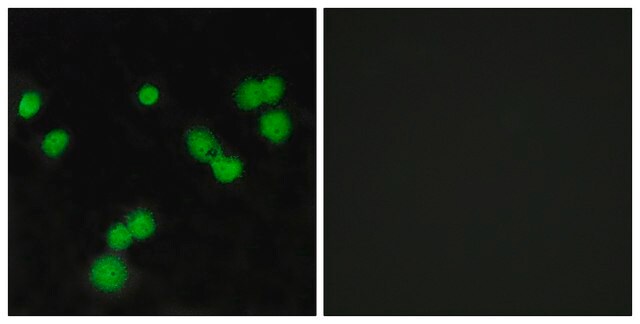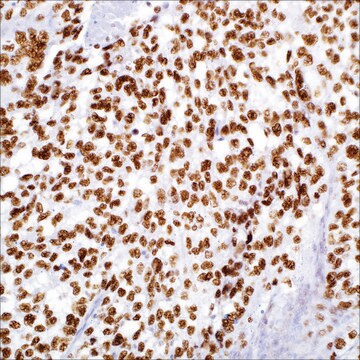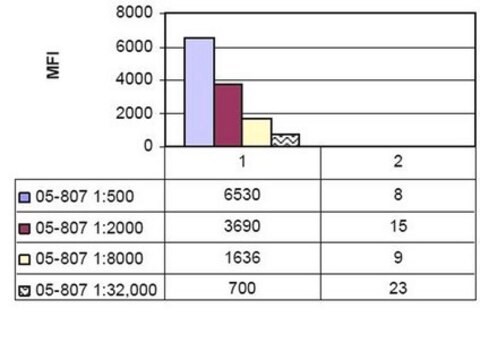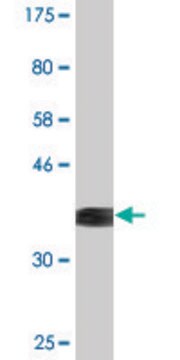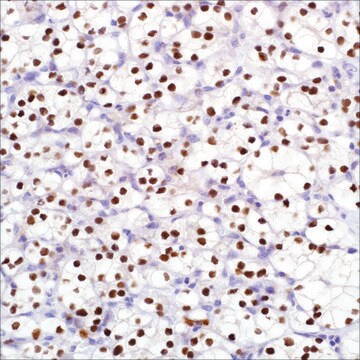AP189C
Donkey Anti-Rat IgG Antibody, Cy3 conjugate, Species Adsorbed
Chemicon®, from donkey
Sign Into View Organizational & Contract Pricing
All Photos(1)
About This Item
UNSPSC Code:
12352203
eCl@ss:
32160702
NACRES:
NA.46
Recommended Products
biological source
donkey
Quality Level
conjugate
CY3 conjugate
antibody form
F(ab′)2 fragment of affinity isolated antibody
antibody product type
secondary antibodies
clone
polyclonal
species reactivity
rat
manufacturer/tradename
Chemicon®
technique(s)
immunofluorescence: suitable
shipped in
wet ice
target post-translational modification
unmodified
Related Categories
Application
Donkey anti-Rat IgG Antibody, Cy3 conjugate, Species Adsorbed is an antibody against Donkey Rat IgG for use in IF.
Legal Information
CHEMICON is a registered trademark of Merck KGaA, Darmstadt, Germany
Not finding the right product?
Try our Product Selector Tool.
Hazard Statements
Precautionary Statements
Hazard Classifications
Aquatic Chronic 3
Storage Class Code
11 - Combustible Solids
WGK
WGK 3
Certificates of Analysis (COA)
Search for Certificates of Analysis (COA) by entering the products Lot/Batch Number. Lot and Batch Numbers can be found on a product’s label following the words ‘Lot’ or ‘Batch’.
Already Own This Product?
Find documentation for the products that you have recently purchased in the Document Library.
P S Bridger et al.
Placenta, 28(11-12), 1110-1117 (2007-09-14)
In the bovine synepitheliochorial placenta key sites of fetal-maternal interaction are placentomes consisting of maternal caruncles interdigitating with fetal cotyledons. The aim of this study was to establish an epithelial cell line from caruncles of pregnant cows and to develop
Kentaro K Ishii et al.
Neuron, 95(1), 123-137 (2017-06-27)
In mice, various instinctive behaviors can be triggered by olfactory input. Despite growing knowledge of the brain regions involved in such behaviors, the organization of the neural circuits that convert olfactory input into stereotyped behavioral output remains poorly understood. Here
Jun-Ping Li et al.
World journal of gastroenterology, 21(34), 9936-9944 (2015-09-18)
To investigate the distribution and neurochemical phenotype of endomorphin-2 (EM-2)-containing neurons in the submucosal plexus of the rat colon. The mid-colons between the right and left flexures were removed from rats, and transferred into Kreb's solution. For whole-mount preparations, the
Thomas L Lynch et al.
Journal of molecular and cellular cardiology, 102, 83-93 (2016-12-14)
Cardiomyopathies are a leading cause of heart failure and are often caused by mutations in sarcomeric genes, resulting in contractile dysfunction and cellular damage. This may stimulate the production of a robust proinflammatory response. To determine whether myocardial inflammation is
Jun-Ping Li et al.
Frontiers in neuroanatomy, 8, 149-149 (2015-01-08)
The distribution and activity of endomorphins (EMs), which are endogenous μ-opioid receptor (MOR) ligands in the gastrointestinal tract (GI), are yet to be elucidated. The current study aimed to shed light on this topic. EM2 was expressed in the enteric
Our team of scientists has experience in all areas of research including Life Science, Material Science, Chemical Synthesis, Chromatography, Analytical and many others.
Contact Technical Service